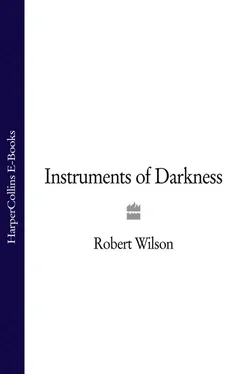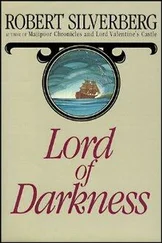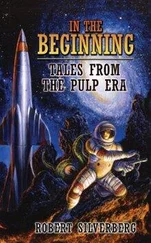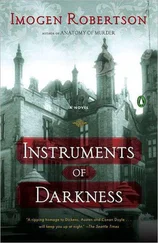Instruments of Darkness
Robert Wilson
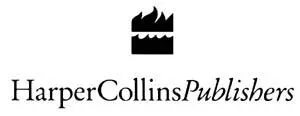
For Jane and in memory of my father
1922–1980
Cover Page
Title Page Instruments of Darkness Robert Wilson
Dedication For Jane and in memory of my father 1922–1980
AUTHOR’S NOTE AUTHOR’S NOTE The French West African currency, the CFA, was devalued in January 1994 from 50 CFA to 100 CFA to the French franc. All financial transactions in this novel are based on the old rate. Although this novel is set very specifically in West Africa, and its backdrop is the Liberian Civil War, all the characters and events in it are entirely fictitious and no resemblance is intended to any event or to any real person, either living or dead.
Map Map
Prologue Prologue My name is Bruce Medway. I live in Cotonou, Benin, West Africa, along that stretch of coast they used to call the White Man’s Grave because it was hot, humid, and full of malaria. It still is, but we don’t die so easily now. Air conditioning and quinine have made us smell better and more difficult to wipe out. I travelled across the Sahara a couple of years ago and stayed. I knew I wasn’t going back before I came. I used to live in London where I made good money in a shipping company. The boredom crushed me, the traffic nearly killed me and the recession threw me out of a job. Now I live in this warm, damp hole in the armpit of Africa and it suits me. The house is rented. I share it with Moses, my driver, who occupies the ground floor and Helen, my cook and maid, who lives with her sister nearby and comes in every day. I don’t make much money. I’d make more without Moses and Helen, but then, cooking and driving in 100 degrees isn’t much fun, they need the money, and I like them. I’ve got some work. I collect money for people, some of which is late, more of which is very late and most of which is so late it’s stolen. I organize things for people – offices, transport, labour and contacts. I negotiate. I manage. Occasionally I find people who’ve lost themselves, some of them accidentally, others on purpose. I’ll work for anybody unless I know they’re criminal or if they ask me to follow their wives or husbands. My clients are mostly expatriates. A lot of them I wouldn’t invite back to my mother’s, and that’s probably why they’re here and not there. They come here to trade as they have done for the last 500 years. They’re a different crowd now – Lebanese and Armenians, Chinese and Koreans, Syrians and Egyptians, Americans and Asians. The Europeans are still here as well, toughing it out with the soggy climate. A lot of them drink too much, some because there’s nothing else to do and others because they want to forget why they’re here. They trade with the Africans and the Africans trade with each other and they all move up and down the coast with the same aim – a fast, hard buck. In Ghana and Nigeria, the old British colonies, the bucks aren’t hard and fast. Their currencies, the cedi and the niara, flop about with the price of cocoa and oil. In Togo, Benin and Ivory Coast the French keep a foot in the door of their ex-colonies by supporting the CFA franc (Communauté Financière Africaine) at fifty to the French franc so that’s the hard, fast buck that everybody’s after. When they get it, they want more. It’s no different to anywhere else in the world.
Chapter 1
Chapter 2
Chapter 3
Chapter 4
Chapter 5
Chapter 6
Chapter 7
Chapter 8
Chapter 9
Chapter 10
Chapter 11
Chapter 12
Chapter 13
Chapter 14
Chapter 15
Chapter 16
Chapter 17
Chapter 18
Chapter 19
Chapter 20
Chapter 21
Chapter 22
Chapter 23
Chapter 24
Chapter 25
Chapter 26
Chapter 27
Chapter 28
Chapter 29
Chapter 30
Chapter 31
Chapter 32
Chapter 33
Chapter 34
Robert Wilson
Praise for Robert Wilson
By the Same Author
Copyright
About the Publisher
The French West African currency, the CFA, was devalued in January 1994 from 50 CFA to 100 CFA to the French franc. All financial transactions in this novel are based on the old rate.
Although this novel is set very specifically in West Africa, and its backdrop is the Liberian Civil War, all the characters and events in it are entirely fictitious and no resemblance is intended to any event or to any real person, either living or dead.
My name is Bruce Medway. I live in Cotonou, Benin, West Africa, along that stretch of coast they used to call the White Man’s Grave because it was hot, humid, and full of malaria. It still is, but we don’t die so easily now. Air conditioning and quinine have made us smell better and more difficult to wipe out.
I travelled across the Sahara a couple of years ago and stayed. I knew I wasn’t going back before I came. I used to live in London where I made good money in a shipping company. The boredom crushed me, the traffic nearly killed me and the recession threw me out of a job.
Now I live in this warm, damp hole in the armpit of Africa and it suits me. The house is rented. I share it with Moses, my driver, who occupies the ground floor and Helen, my cook and maid, who lives with her sister nearby and comes in every day.
I don’t make much money. I’d make more without Moses and Helen, but then, cooking and driving in 100 degrees isn’t much fun, they need the money, and I like them.
I’ve got some work. I collect money for people, some of which is late, more of which is very late and most of which is so late it’s stolen. I organize things for people – offices, transport, labour and contacts. I negotiate. I manage. Occasionally I find people who’ve lost themselves, some of them accidentally, others on purpose. I’ll work for anybody unless I know they’re criminal or if they ask me to follow their wives or husbands. My clients are mostly expatriates. A lot of them I wouldn’t invite back to my mother’s, and that’s probably why they’re here and not there.
They come here to trade as they have done for the last 500 years. They’re a different crowd now – Lebanese and Armenians, Chinese and Koreans, Syrians and Egyptians, Americans and Asians. The Europeans are still here as well, toughing it out with the soggy climate. A lot of them drink too much, some because there’s nothing else to do and others because they want to forget why they’re here.
They trade with the Africans and the Africans trade with each other and they all move up and down the coast with the same aim – a fast, hard buck. In Ghana and Nigeria, the old British colonies, the bucks aren’t hard and fast. Their currencies, the cedi and the niara, flop about with the price of cocoa and oil. In Togo, Benin and Ivory Coast the French keep a foot in the door of their ex-colonies by supporting the CFA franc (Communauté Financière Africaine) at fifty to the French franc so that’s the hard, fast buck that everybody’s after. When they get it, they want more. It’s no different to anywhere else in the world.
Tuesday 24th September
There were a few worse places to be in the world than outside warehouse 2 in Cotonou Port, but I couldn’t think of them. Moses and I were on our haunches in 105 degrees and – it felt like – 200 per cent humidity. I was losing weight and patience.
Читать дальше
